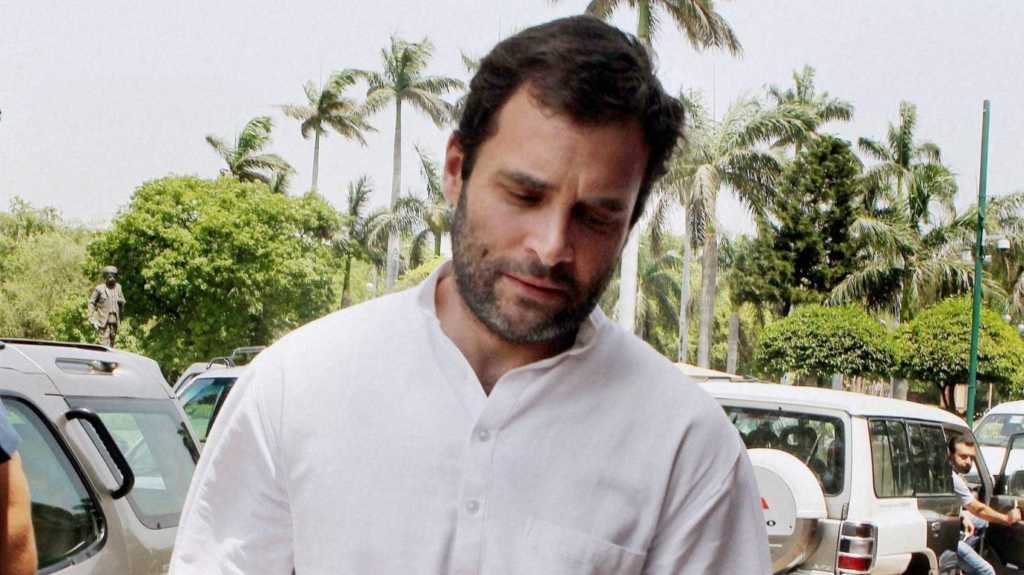On the basis of the present political scenario one can agree with the fact that Rahul Gandhi is not suitable when we talk about the political spectrum. In the herd of the leaders blaming the Congress President for incompetency, the BSP supremo is the latest to join. The BSP supremo, Mayawati blamed Rahul Gandhi for the BJP’s excellent performance in the Karnataka election. In a statement, she said, “I want to suggest to the Congress that it should not use language for its political expediency during an election campaign that ends up benefiting the BJP and RSS”. She further added, “It is now apparent how they (Congress) in election speeches dubbed the JD(S) as the B-team of BJP, particularly in regions with significant Muslim population, thereby causing division in votes. This resulted in victory mostly of BJP candidates in these regions. BJP could not have got 104 MLAs had the Congress not indulged in this kind of rhetoric”. The BSP is in an alliance with the Janata Dal (Secular) in Karnataka. It contested for 20 seats but ended up winning just one.
The BSP contested mostly in regions with a significant proportion of Muslim population but then the BJP won in most of these regions. The Congress President, Rahul Gandhi during his campaign called the BSP a B-team for BJP, which could be the reason behind Mayawati’s displeasure. Mayawati blaming the Congress clearly indicates that despite all the discussions and talks over uniting against the BJP, it seems the opposition has not been able to find a common ground. The Congress does not agree with the idea of being sidelined from the position of the main alternative because it can be a step towards a “Congress-Mukt Bharat”. On the other hand the regional parties do not see Congress as a main opposition because Congress is left with only two states and one union territory (Punjab, Mizoram and Puducherry). After the Uttar Pradesh election in 2017 Congress is being seen as a liability rather than an asset. In UP Samajwadi party leader, Akhilesh Yadav formed an alliance with the Congress but then he ended up performing badly in the election. The SP ended up with only 54 seats out of 403 while in the earlier election it had 224 seats.
The idea of a united opposition has been implied three times in Indian political history but then it failed every time without completing a 5-year term in the government. The first time the idea gained importance was in 1977 after the ‘the emergency’. The whole opposition united against the tyranny of the Congress Prime Minister, Indira Gandhi, under the leadership of the socialist icon Jayprakash Narayan. The Janata party won 345 out of 542 seats while the Congress was reduced to a mere 189. Moraraji Desai became the Prime Minister but then the government could not complete even three years because of the internal disputes within the party.
After 1989 general election Congress emerged as the single largest party with 197 seats but was far from gaining a majority. During that time Janata Party, TDP, DMK, Asom Gana Parishad(AGP) with various other regional parties in coalition came together under the umbrella of ‘National Front’ to make a government at the centre. They were also supported by the BJP and the Leftist parties. The Mandal Commission fame, V P Singh became the chief Minister but again because of internal disputes within the party, the government could not last for even two years.
This idea propelled once again in 1996, this time to keep BJP out of power. In 1996 after the general election, BJP became the single largest party with 161 seats under the leadership of ex-Prime Minister Atal Bihari Vajpayee. The Congress was reduced to second place with a mere 140 seats in hand. Again all the regional parties like Samajwadi Party, Dravida Munnetra Kazhagam, Asom Gana Parishad, Tamil Maanila Congress, Telugu Desam Party and Communist Parties came together under the umbrella of the United Front to form a government in the center. The only difference this time was that the Communist Parties were sharing power rather than supporting from outside. The search for Prime Minister began, with all parties agreed on the name of the communist chief minister of West Bengal, Jyoti Basu but the CPM declined to make him the Prime Minister in a coalition government. Finally, H. D. Deve Gowda father of H. D. Kumaraswamy became the Prime Minister. The Congress extended its support from outside to the government to keep Atal Bihari Vajpayee away from PM seat. But once again internal disputes began and the government fell within a short period of two years.
So, whoever has knowledge of the political history of India must be well aware of that the idea of united opposition hardly succeeded ever. This time it looks like it is bound to fail even before it started because no opposition party agrees with one another on any issue. Mayawati is not happy with Rahul Gandhi, Chandrababu Naidu is not happy with K. Chandrashekhara Rao, also Lalu Prasad Yadav is not happy with Ram Vilas Paswan and the list is endless. In the following month it will be interesting to see whether the opposition could forget their differences and end up uniting against the government or not.
